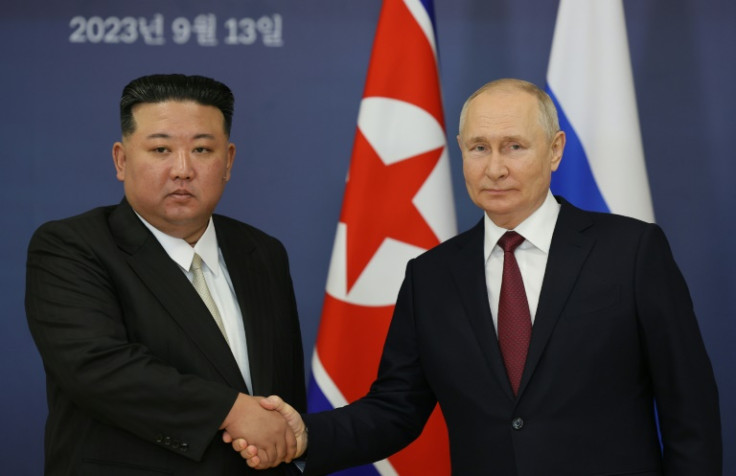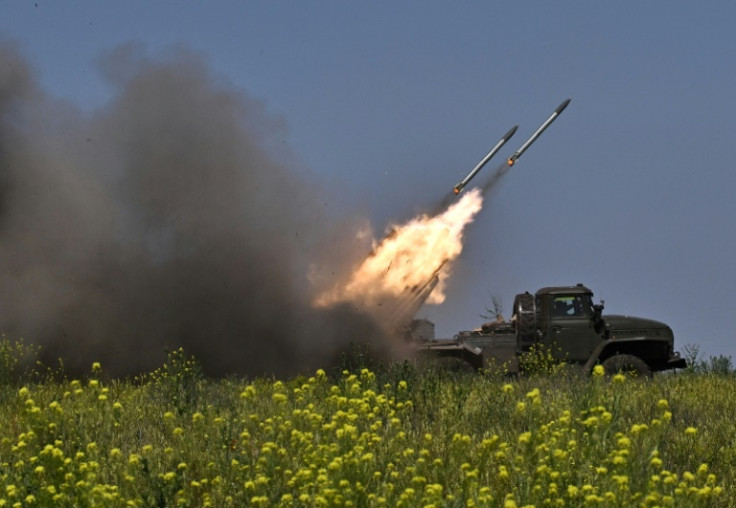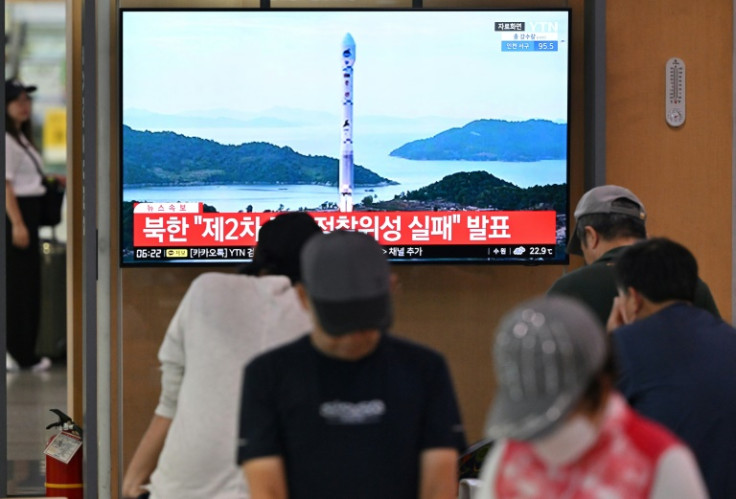North Korean shells could keep Russian guns firing
North Korea's suspected plans to supply Russia with ammunition could allow Moscow to keep up its war effort in Ukraine but would fall short of a solid strategic alliance, experts say.

North Korea's suspected plans to supply Russia with ammunition could allow Moscow to keep up its war effort in Ukraine but would fall short of a solid strategic alliance, experts say.
Diplomatically isolated, President Vladimir Putin on Tuesday welcomed North Korean leader Kim Jong Un, with Washington warning the meeting could result in an arms deal especially for the artillery shells sorely needed by Moscow.
Russia has ramped up domestic production to a forecast 2.5 million shells this year, from 1.7 million in 2022 -- the year it invaded neighbouring Ukraine.
But with Moscow's forces firing up to 60,000 rounds a day, according to Ukrainian figures, "it may be that Russia's increased production capacity is below its real needs on the battlefield," said Yohann Michel, an analyst at the International Institute for Strategic Studies (IISS).
In a study published Friday, the German Council on Foreign Relations found that "Moscow needs imports if it wants to sustain the current operational intensity of its war effort over a long time".
Russia turned to Iran from last year to provide hundreds of explosive drones.
North Korea boasts large stocks of Soviet war material -- albeit in unknown condition -- and itself mass-produces conventional weaponry.
Early this year, Washington accused Pyongyang of supplying artillery shells for the Russian Wagner paramilitary group's assault on eastern Ukrainian town Bakhmut.
North Korean forces "have a lot of artillery elements," said Maciej Szopa, a military analyst for Polish outlet Defence 24.
"This is the backbone of the strategy against South Korea and against the US Army in Korea. So maybe they have a bit of these weapons they can provide to the Russians."
Specifically, North Korea may be able to supply 122-millimetre rockets used by Soviet-era BM-21 "Grad" multiple launchers, which Russia has been using in Ukraine.
Its stocks also contain cannons and howitzers from the 1950s and 1960s.
In exchange, Pyongyang might want oil and food from Russia, or even access to space technology.
Putin spoke Wednesday of possible aid for the Kim regime's satellite programme, after two recent failures to launch a military spy orbiter.
For now, the Russian leader has avoided speaking of a firm agreement, saying only that he saw "prospects" for military cooperation.
That could be highly beneficial for North Korea, ultra-isolated because of its nuclear and ballistic missile programmes.
But "we have to be cautious," IISS analyst Michel said.
"There may be an interest for Russia. It remains to be seen whether it's there for North Korea, and whether the Russians are prepared to give what they ask in exchange," as both sides "weigh up their interests", he added.
Whatever the decision, none of the experts spoken to by AFP expected North Korean weaponry to hand Moscow a decisive advantage in Ukraine.
And military cooperation with a country under UN sanctions could carry a heavy cost for Putin on the international stage.
Instead, the high-profile welcome for Kim could be meant as a strategic message to the West.
"Moscow has an interest in staging a rapprochement with Pyongyang, not necessarily in buying weapons," Antoine Bondaz, an expert at France's Foundation for Strategic Research (FRS), wrote on X (formerly Twitter).
"On the Russian side, this communication strategy aims to put pressure on Seoul," which is "indirectly supplying arms to Ukraine via Poland" and is NATO's third-largest arms supplier, he added in an article for French daily Le Monde.


© Copyright AFP 2025. All rights reserved.





















